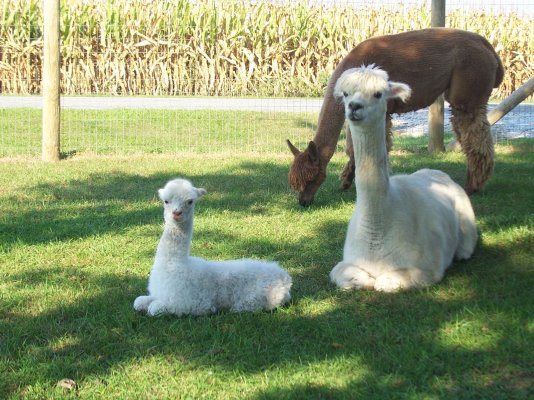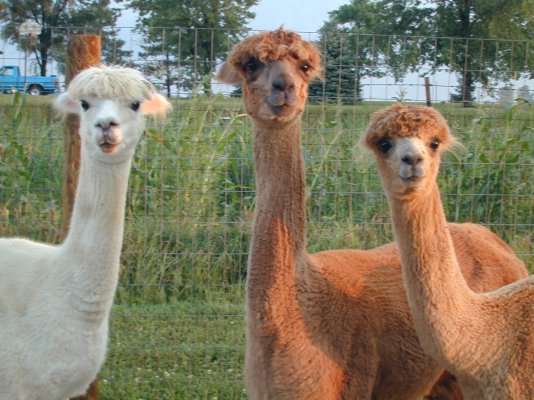explanade
Give me a museum and I'll fill it. (Picasso) Give me a forum ...
- Joined
- May 10, 2008
- Messages
- 7,439
Just saw a House Hunters of a family looking for a place with a lot of land in Boston, with a budget of $3 million.
They wanted the land to raise alpacas.
That appears to be their only source of income.
So out of their choices, they bought an old home which had the most land for $1.4 million. The other ones had only 4 or 5 acres.
But they already had a lot of alpacas so they bought the one with the land and a barn and paddocks. They're going to fix up the home, modernize, expand it.
I didn't realize the fur was used for high-end garments. Sounds like they're easier to raise than other types of animals and go income potential because of that fur.
But if you have to have acres and acres, the startup costs can't be good. Not that I'm interested, just a bit surprised.
They wanted the land to raise alpacas.
That appears to be their only source of income.
So out of their choices, they bought an old home which had the most land for $1.4 million. The other ones had only 4 or 5 acres.
But they already had a lot of alpacas so they bought the one with the land and a barn and paddocks. They're going to fix up the home, modernize, expand it.
I didn't realize the fur was used for high-end garments. Sounds like they're easier to raise than other types of animals and go income potential because of that fur.
But if you have to have acres and acres, the startup costs can't be good. Not that I'm interested, just a bit surprised.


